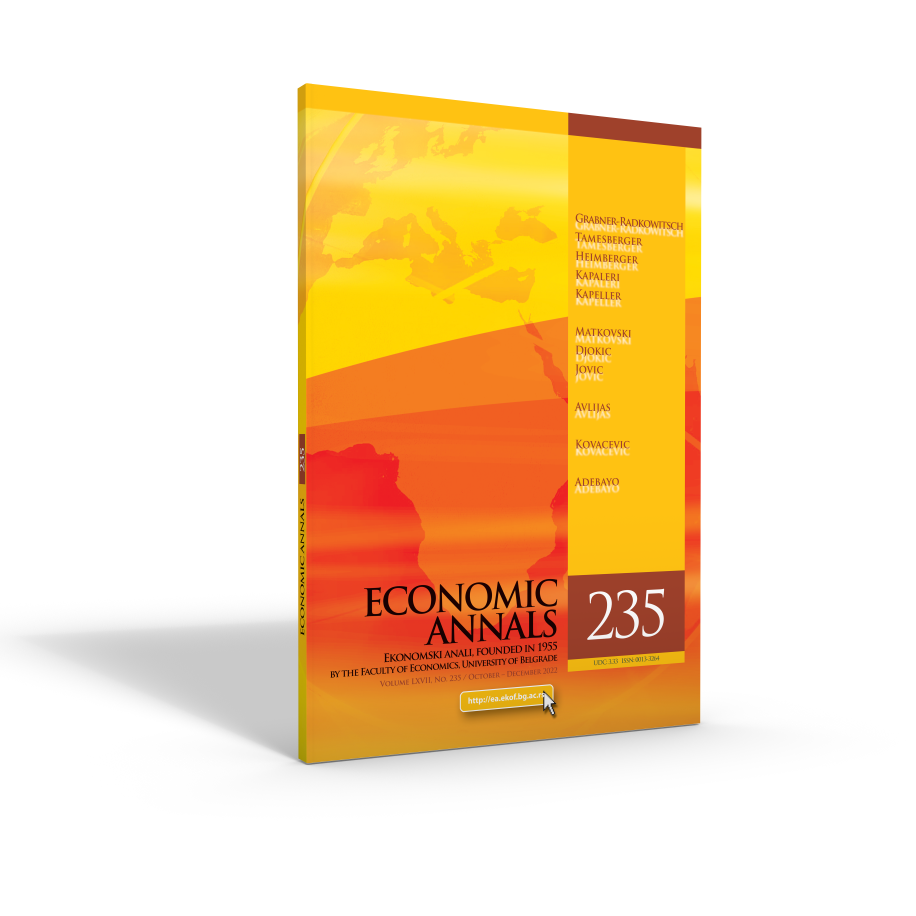THE EFFECTS OF FDI NET INFLOW ON THE CURRENT ACCOUNT OF SOUTHEAST EUROPE COUNTRIES – A PANEL CAUSALITY ANALYSIS
##plugins.themes.bootstrap3.article.main##
##plugins.themes.bootstrap3.article.sidebar##
Radovan Kovačević
Abstract
This paper examines the relationship between the current account (CA) and the foreign direct investment (FDI) net inflow in the Southeast Europe (SEE) countries. The panel data framework of five SEE countries for the period 2000-2020 are used. Our research has three main findings. First, using the vector autoregressive VAR(2) model, a long-run relationship between the CA and the net FDI inflow is identified (a 1% increase in the net FDI inflow leads to a 1.011% increase in the CA deficit). This suggests that FDI stock will put upward pressure on the CA of the SEE countries in the long run. Second, applying the panel VAR model Granger causality test, we found that there is a two-way directional Granger causality. Third, our results from the vector error correction (VEC) model suggest that about 26% of the dynamics of the CA deficit adjusts to the long-run equilibrium path with the net FDI inflow each year.
##plugins.themes.bootstrap3.article.details##
Keywords
Southeast Europe, foreign direct investment, current account, vector autoregressive model, vector error correction model, Granger causality
JEL Classification
C22, F21, F32, F40
Issue
Section
Articles
How to Cite
Kovačević, R. (2022). THE EFFECTS OF FDI NET INFLOW ON THE CURRENT ACCOUNT OF SOUTHEAST EUROPE COUNTRIES – A PANEL CAUSALITY ANALYSIS. Economic Annals, 67(235), 95-122. https://doi.org/10.2298/EKA2235095K
How to Cite
Kovačević, R. (2022). THE EFFECTS OF FDI NET INFLOW ON THE CURRENT ACCOUNT OF SOUTHEAST EUROPE COUNTRIES – A PANEL CAUSALITY ANALYSIS. Economic Annals, 67(235), 95-122. https://doi.org/10.2298/EKA2235095K

